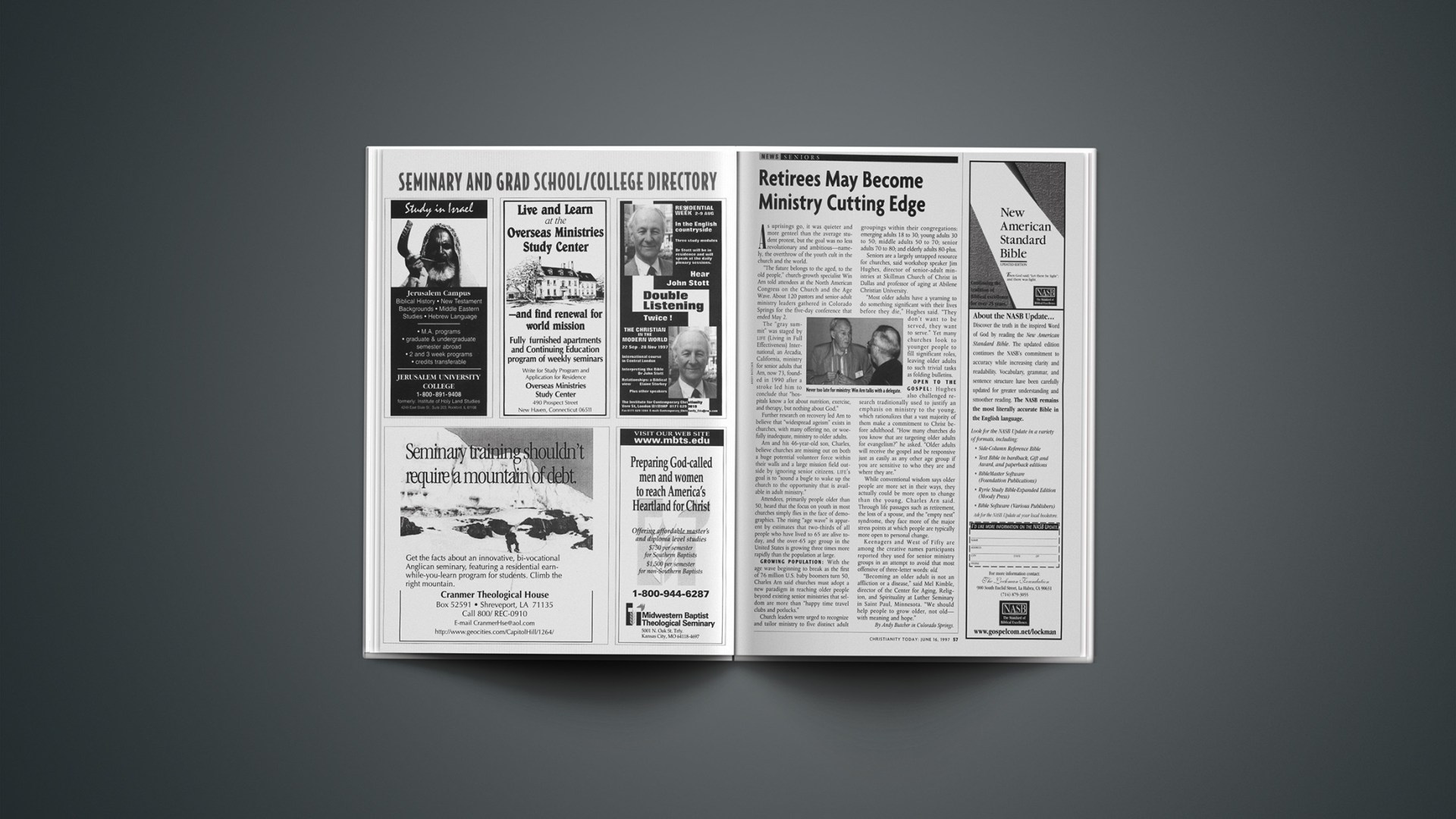At its tenth general assembly, the World Evangelical Fellowship (WEF) announced a plan to develop fellowships in an additional 20 countries.
WEF leaders hope to establish the new national evangelical fellowships by the year 2000. The umbrella organization already represents about 150 million evangelicals in regional and national alliances in 112 countries.
Gathering at WEF’s tenth general assembly in Abbotsford, British Columbia, Canada, May 8-15, nearly 700 evangelical leaders from 93 countries met for the last time this century to discuss shared goals and strategies. (WEF holds its general assembly every five years.)
In a keynote address to the assembly, WEF international director Agustin B. Vencer, Jr., a Filipino pastor and lawyer, outlined the vision for the future, asserting that the world is at the brink of a “kairos moment” where evangelicals can play a strategic role to “transform nations for Jesus Christ.” Such a role, Vencer said, depends on a “holistic” biblical view of mission that encompasses economic sufficiency, social peace, public justice, and national righteousness, as well as Christian presence.
“This is a total call to live out our faith in society, a total call for empowerment to get the job done, a total call for mobilization that the world may believe in Jesus,” Vencer said.
Tokunboh Adeyemo, chair of WEF’s International Council, said there are “more than enough evangelicals in the world today to change it.”
Adeyemo, who is also general secretary of the Association of Evangelicals of Africa, noted that many sociologists believe it takes less than 2 percent of any society to provoke substantial social change. “If we were to put the world’s population at 5 billion and the evangelicals linked to WEF at 150 million, that makes us 3 percent, a far greater percentage than the New Testament disciples who turned their world upside down,” he said.
GLOBALIZATION THEME: The globalization of evangelicalism was a key theme at the assembly, right from the opening ceremony, when delegates marched into the meeting hall carrying national flags. According to church researchers, the evangelical movement has grown rapidly in recent decades, especially in Latin America, Asia, and Africa (CT, May 19, 1997, p. 38). About 70 percent of all evangelicals now live outside the West.
Vencer said that within such a context, it is vital that local churches use their strengths to work together in partnership.
“We have developed a oneness of what evangelicals ought to be doing in the world as a result of their understanding of who they are,” he told CT. “The local is becoming more and more global.”
Delegates pledged to cooperate internationally on several issues, including missions, church planting, and religious liberty.
In fact, religious liberty played a prominent role at the assembly. WEF presented Brother Andrew, founder of the Open Doors ministry to persecuted Christians, with its Religious Liberty Award. WEF leaders chose Brother Andrew to honor those who minister “to the suffering church from the outside.”
During the meeting, petitions were circulated urging the governments of Bulgaria and Sri Lanka to stop persecution and discrimination against local Christians. Organizers also promoted WEF’s second annual International Day of Prayer for the Persecuted Church, to be held September 28.
“If we can use the hundreds of millions of ears over the world … and bring the whole world body to pray and respond, it opens up possibilities we haven’t even dreamed of,” said Johan Candelin, the Finnish executive secretary of WEF’s Religious Liberty Commission.
Many WEF delegates said that linking with the worldwide evangelical body enhances their local ministry efforts. Godfrey Yogarajah, general secretary of the Evangelical Alliance of Sri Lanka, described his group’s humanitarian and reconciliation work among warring ethnic factions. Because less than 1 percent of Sri Lankans are evangelicals, Yogarajah said being part of “a family of 150 million evangelicals gives us a sense of belonging.”
STILL WORK AHEAD: For all the international networking that occurred during the meeting, WEF leaders acknowledged that evangelicals have much work ahead to iron out divisions among church leaders at the national and regional level, as well as tensions with parachurch groups.
“Often, the task of reconciliation begins in the church,” Vencer said. “To remain divided, the church would have no relevance to society.”
Some delegates noted the low profile of U.S. participation at the assembly. Although several keynote speakers were Americans, there was less U.S. representation in WEF business.
“I’m disappointed that more American evangelicals don’t understand the strategic significance of WEF, as demonstrated by the level of participation,” said Robert Wenz, pastor of the Derwood, Maryland, Alliance Church and a delegate representing the National Association of Evangelicals. “We have a responsibility to the larger evangelical body in the world.”
A controversial proposal from WEF staff members suggesting that the organization’s name be changed to World Evangelical Alliance in order to better convey a proactive agenda was referred back to the International Council for further consultation.
Representatives of WEF, the Lausanne Movement, and A.D. 2000 met privately to discuss ways of working together in the future, particularly after 2000. Vencer acknowledged that a merger is one option being discussed.
Copyright © 1997 Christianity Today. Click for reprint information.










